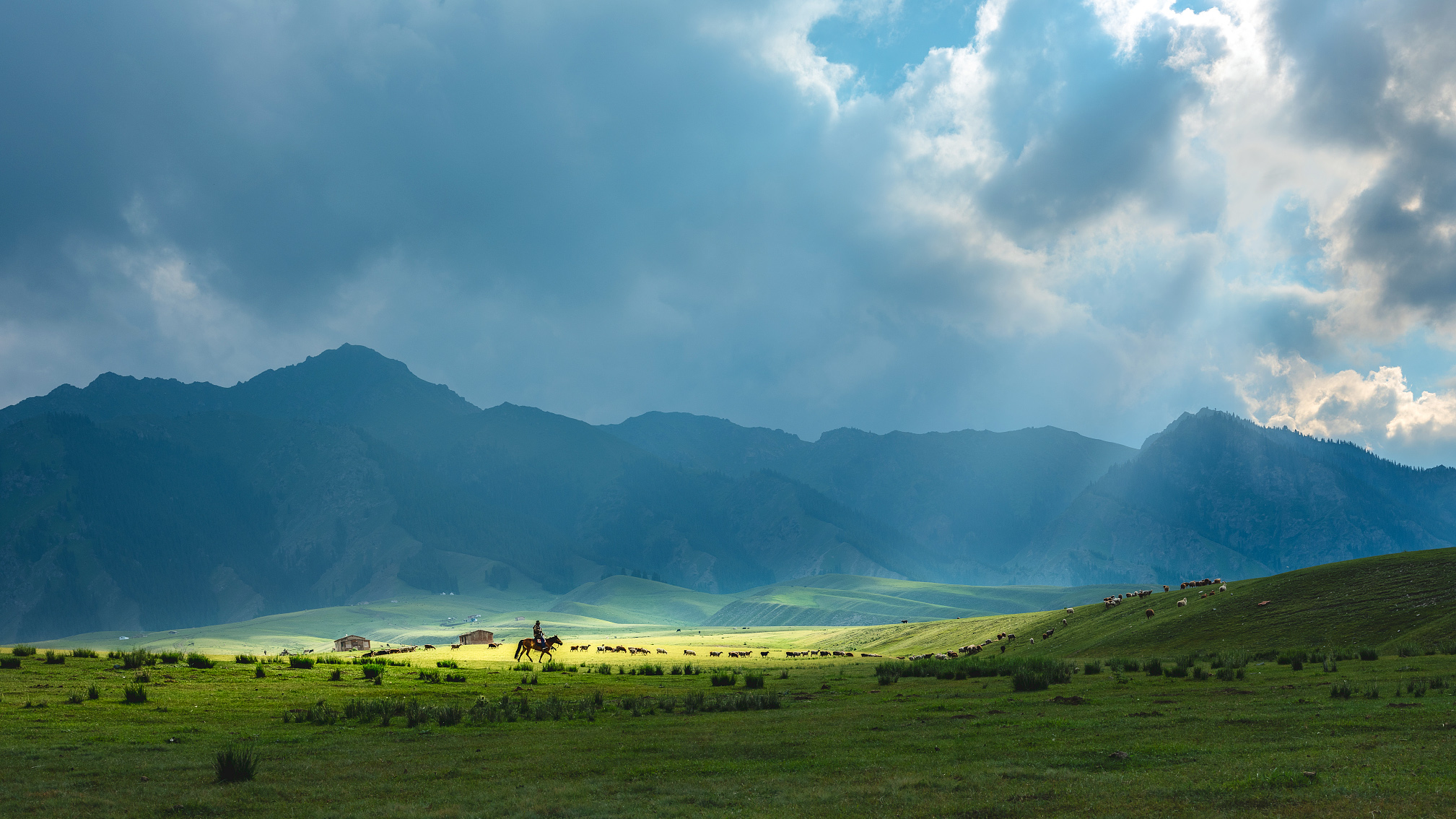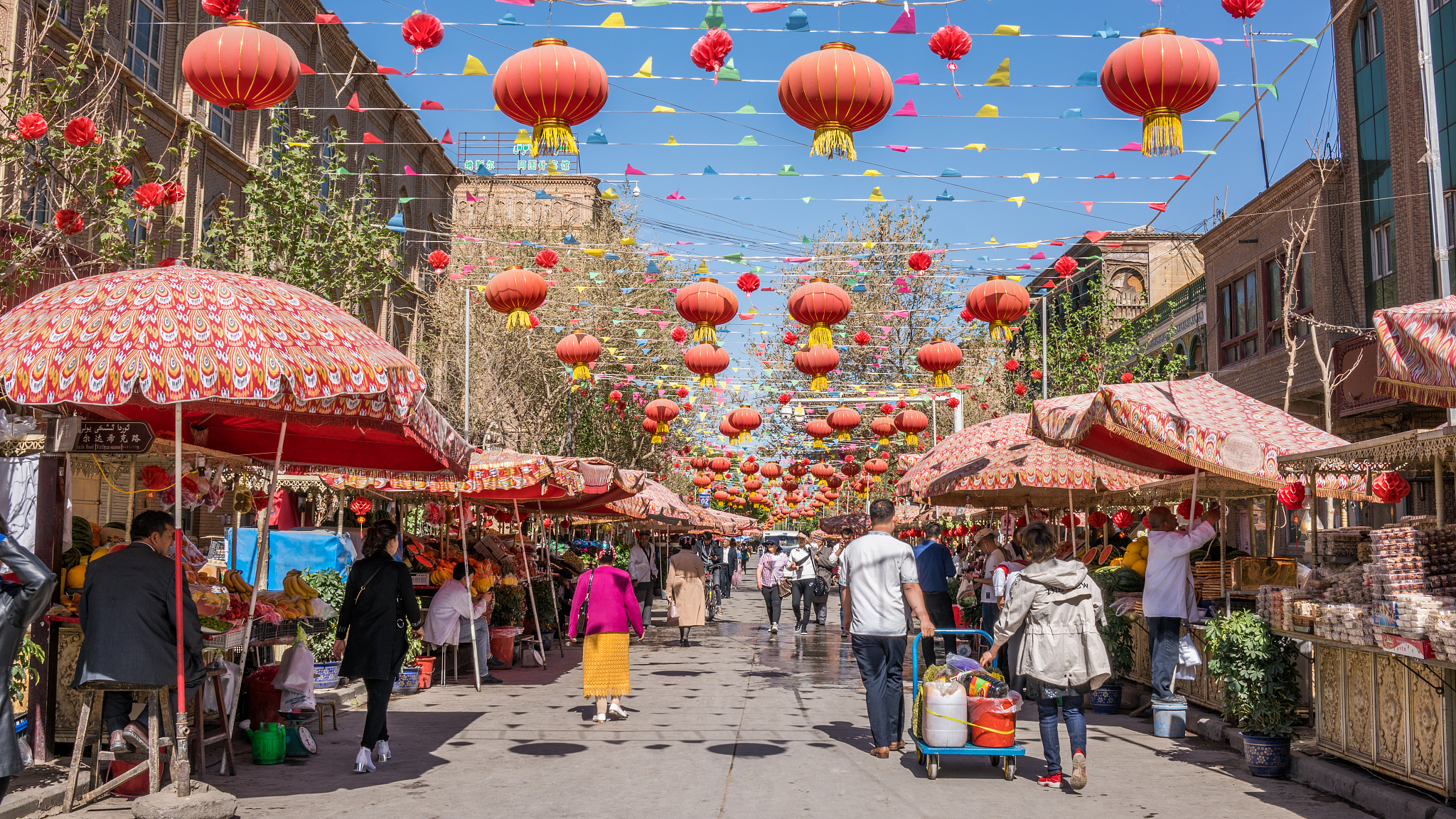03:29

Northwest China's Xinjiang Uygur Autonomous Region is in an optimal period of development, that's according to a new white paper titled "Respecting and Protecting the Rights of All Ethnic Groups in Xinjiang" published on Wednesday by the State Council Information Office.
The document spoke of efforts to ensure human rights protection in the region, underlining that China has given priority to securing and improving people's well-being, advanced various undertakings in Xinjiang and shared the fruits of reform and development with people of all ethnic groups to guarantee their equal rights to participation and development.
No terrorist incidents have taken place in Xinjiang for over four years. Ethnic minorities make up over 60 percent of regional legislators in Xinjiang. More than 2.7 million rural residents in Xinjiang have been lifted from extreme poverty, and the per capita disposable income of residents has risen more than 100 times over the past four decades.
While praising China's progress in human rights protection, the white paper also slammed the allegations and claims surrounding Xinjiang. "Their goals are to discredit China, interfere in China's internal affairs, restrict China's development and destroy stability and prosperity in Xinjiang," said the document.
The Chinese government said it has upheld a people-centered approach to human rights protection in Xinjiang, prioritizing the rights to subsistence and development. Experts explained that the approach integrated the principle of universal human rights with the country's realities.
"When other countries face the threat of terrorism, they also try to strike a balance between human rights and national security concerns," said Wang Jiang, a special researcher at the Chinese Academy of Social Sciences' Center for Human Rights Studies. He added that universal human rights issues should not oppose a countries' realities.

The ancient city of Kashgar in Xinjiang, April 12, 2019. /CFP
The ancient city of Kashgar in Xinjiang, April 12, 2019. /CFP
Religious beliefs and freedom in Xinjiang, under such a circumstance, are often criticized by the West. Wang said the government has invested heavily in restoring old religious sites while cracking down on illegal and extremist activities so that ethnic minorities can practice their beliefs in peace.
"I think that, through such investment and development, the cultural and religious rights of all ethnic groups in Xinjiang are being guaranteed and improved," Wang said.
The white paper also touches on how Xinjiang has pursued equal economic opportunities and rights for its residents. Wang said the results speak louder than the "forced labor" narratives widely circulated in the West, reflecting that the local government guarantees the protection of labor rights of all ethnic groups in the region.
"From 2014 to 2020, the region's workforce increased by nearly 20 percent. That's a huge leap," the expert said.
"We've also passed various laws on the national and regional levels to guarantee the corresponding rights of workers in Xinjiang, with no such thing as 'forced labor' as the West claims," he added.
China has published a series of white papers about Xinjiang over the years, aimed at shedding light on key issues from its history and development to its culture and religion. Some experts say the new document displays China's efforts to be more transparent about Xinjiang and promote the conversation on human rights rather than confrontation. The new white paper comes amid a debate over Xinjiang at the 47th session of the United Nations' Human Rights Council.
"We should note that there's been a phenomenon over the past few years, where human rights issues have been politicized and weaponized by Western societies. For developing countries, whose control over international media resources is relatively weak, it's easy for them to be accused of human rights issues. Therefore, I think such a white paper can let the world know more about the real situation in Xinjiang," said Wang.
(Cover: Residents in China's Xinjiang Uygur Autonomous Region. /CFP)

